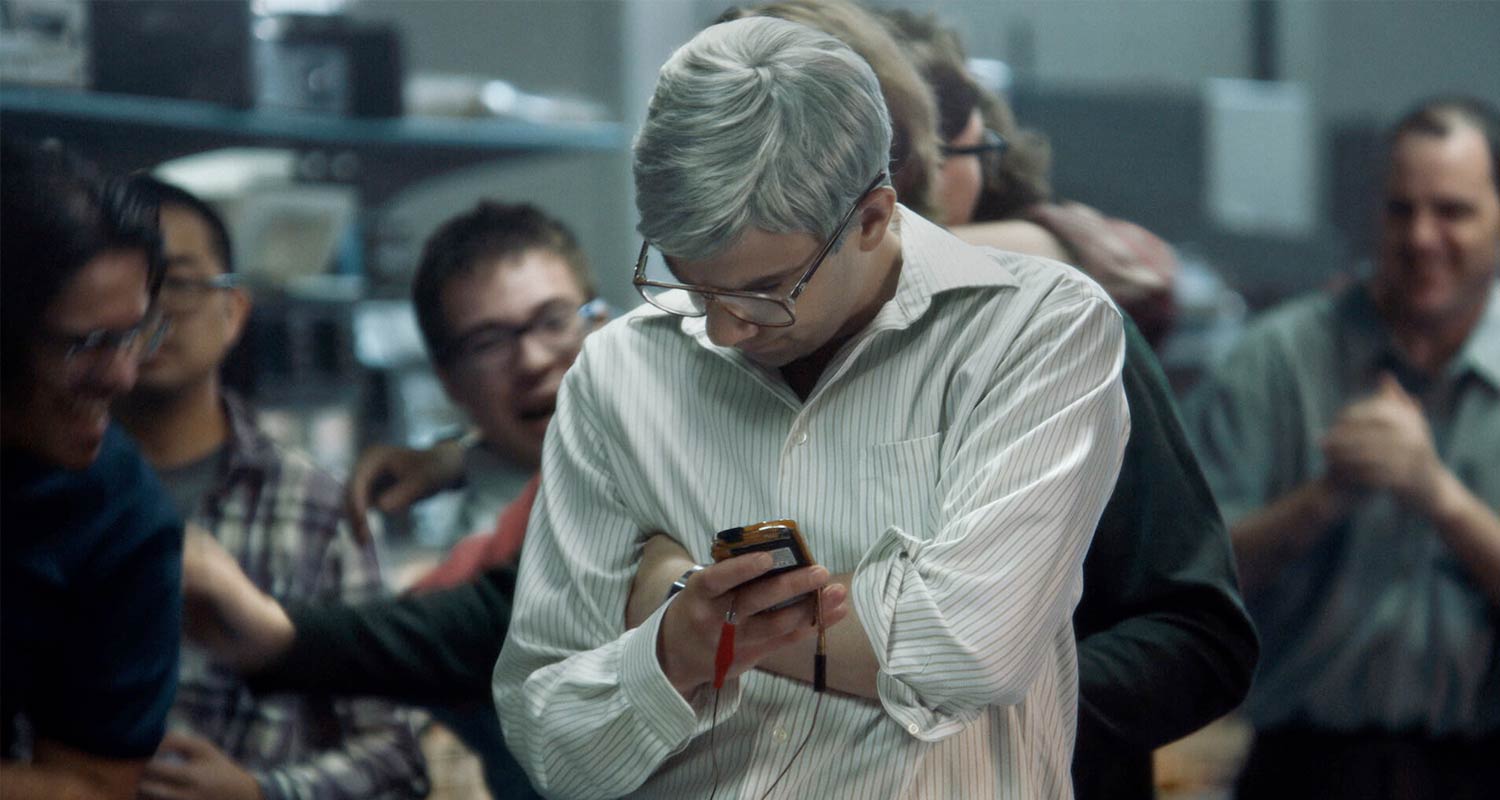
Matt Johnson, the director of BlackBerry (2023), admits he took a number of creative liberties with Jacquie McNish and Sean Silcoff’s book, Losing the Signal: The Untold Story Behind the Extraordinary Rise and Spectacular Fall of BlackBerry.
But it’s unlikely anyone watching the movie will mind – the biopic draws you in with its clever dialogue and fast-paced action, despite its subject matter dealing with tech, and is surprisingly emotive.
In 1984, Doug Fregin and Mike Lazaridis founded Research In Motion (RIM) in Waterloo, Canada with some childhood savings and a C$15 000 loan. Lazaridis had dropped out of college two months before graduating after landing a contract from General Motors to develop a network computer control display system, and joined up with Fregin, a friend since early school days.
Fregin played a vital role in designing the initial circuit boards used in the company’s wireless technology and was (apparently) a quiet, enigmatic figure who was happy to work at solving engineering problems while others did the front-of-house PR. Not that you’d glean that from the movie.
But then, as Johnson says, he had to do a lot of guesswork in his portrayal of Fregin (Johnson played that role in addition to directing the movie). “Doug is a true cipher, he has never done a taped interview,” said Johnson, which led him to portray Fregin as a “kind of mascot figure who is tying the culture of the office together”.
BlackBerry shows the roller coaster of emotions involved in developing the prototype for the BlackBerry 850, the world’s first wireless e-mail and paging device. It revolutionised the way business was conducted, offering on-the-go e-mail access and setting the stage for the smartphone era to come.
Wildly popular
BlackBerrys were business-centric phones that became wildly popular due to their small keyboard underneath the screen and its ability to handle e-mail.
“What RIM did with the BlackBerry is it integrated with the corporate e-mail servers,” noted former RIM engineer Matthias Wandel. “So, if your company had a BlackBerry server connected to their e-mail server, that would then go out through the internet and then go over Mobitex and enter your BlackBerry, and it would seem like it was just part of your PC’s inbox, in that if you sent from it, it was sent from your PC and it would be in your outbox. So, to have a really good e-mail integration, that was RIM’s thing at the time.”
The dialogue in the movie is fresh and funny and adds to the comic moments. In an early scene set in 1996, businessman Jim Balsillie arrives in his office to find Lazaridis and Fregin waiting to give him a sales pitch for their product. While waiting, Lazaridis becomes obsessed with a consistent buzzing sound from a Chinese-manufactured phone on Balsillie’s desk. “Made in China,” he says. “The mark of the beast.”
Needless to say, their presentation is excruciatingly amateur and nothing comes of it. But Balsillie has recognised the potential, and Lazaridis knows he is no businessman like Balsillie, who can convince someone to buy his product, so a partnership is born. Harvard graduate Balsillie joined RIM as co-CEO in 1992.
Of course, his slick style and bullying demeanour immediately alienates Fregin and many of the other geeks working at RIM at the time, leading to Fregin eventually selling all his stock in the company and resigning.
Portrayed as foul-mouthed and prone to temper tantrums in the movie, Balsillie commented on the movie: “I’m aggressive. I’m competitive. I’m ambitious. I own that, but the film exaggerates it to the point of satire.”
In 2009, RIM secured first place in Fortune’s 100 fastest growing companies. In September 2010, it had the largest market share (37.3%) in the US smartphone market and its global user base stood at 41 million subscribers. The company’s market cap was $85-billion.
As in all good morality tales, hubris was hot on the heels of Lazaridis and Balsillie. It came in the form of the Ontario Securities Commission, which accused the pair of illegally backdating millions of stock options. And as Claudius said in Hamlet, “When sorrows come, they come not single spies, but in battalions.” For, shortly after that, Apple CEO Steve Jobs unveiled the first iPhone. And that event, more than any other, coupled with hubris and arrogance, led to the end of the BlackBerry smartphone. BlackBerry lives on today, specialising in cybersecurity, but no longer makes phones or other consumer electronics devices.
The movie comes to a close in 2008 with Lazaridis despondently opening boxes of the new BlackBerry Storm, which now has a touchscreen – and static noise, having finally being made in China.
BlackBerry’s ending cuts to black long before it all implodes in on itself.
BlackBerry is available to rent (US$7) or own ($15) on Google Play. – © 2023 NewsCentral Media




